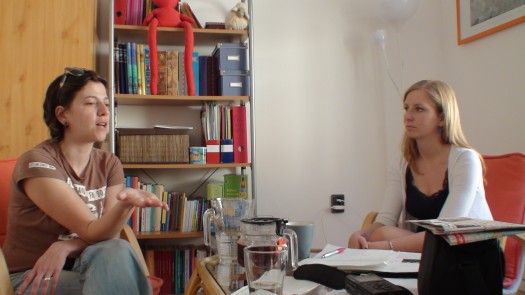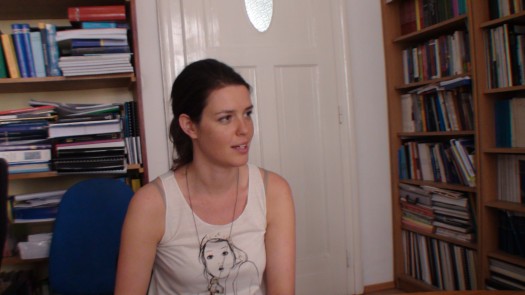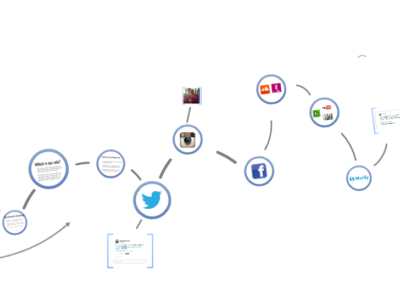The Afghan Refugees in Hungary
by Csilla Völgyi (Hungary) and Ahmed Anchour (Tunisia)
Cover Photo by Martin Hanzel
Since November 2012 more than 100 Afghan refugees have been protesting against the social conditions and lacking reception system for refugees in Hungary. They stood in front of the Hungarian Parliament and presented their demands as, after receiving refugee status, more and more feel that their situation is becoming hopeless: they asked for housing, jobs and a most of all a chance to become part of the Hungarian society. We asked legal expert on asylum from the Hungarian Helsinki Committee Júlia Iván, social worker from the Menedék NGO Lilla Zentai and UNHCR integration associate Zsuzsanna Puskás about the underlying causes that triggered this unprecedented mobilization.
[soundcloud url=”http://api.soundcloud.com/tracks/89697539″ params=”” width=” 100%” height=”166″ iframe=”true” /]
Zsuzsanna Puskás UNHCR
Lilla Zentai, Menedek
Júlia Iván, Hungarian Helsinki Committee
Audio Script
“We need jobs”, “we need homes”, “we need a better future”, “help us”…
These were the slogans that more than 100 Afghan refugees have raised in front of the Hungarian parliament in November 2012. They protested against the unwelcoming social conditions in the country. Another major problem was the lack of a well-functioning asylum system.
What are the main causes that triggered these protests? Lilla Zentai, a social worker from the Hungarian NGO Menedék, explains:
Lilla Zentai: They have decided to go on protests since their time in the Bicske reception center expired and it was the middle of the winter, they didn’t know where to go and actually they were hopeless, they didn’t know how much money will they get. They experienced that people who moved out couldn’t really find their ways in the cities. Many of them with families were worried about what would happen to them. The Immigration Office decided to give them an extra four months. Also, the conditions in the camp were very bad; they didn’t have a chance to learn the language properly, the health care and the whole environment was bad. It is supposed to be a pre-integration camp, but it is not.
Most of the protestors have been granted asylum by the Hungarian government but the problems come when their time in the refugee center comes to an end.
The asylum-seekers are not provided with sufficient funds and social assistance. Once they step into the real world, they are threatened by homelessness and extreme poverty.
Zsuszanna Puskás, Integration Officer from the UN Refugee Agency shares her insights on the situation of Afghan refugees.
Zsuzsanna Puskás: What they have been criticizing basically is the lack of assistance provided after they get their status and after they leave Bicske. Where there is not much provided in Bicske, is even less when they leave the camp. They are supposed to learn the language, find their way in the society, and find an apartment in 6 months time, which is just very short. So when they leave Bicske, currently almost no transitional package is provided to them to start their way after they move out. So they really are in the danger of becoming homeless.
During the protest, the refugees handed their petition to the Ministry of Interior. According to Júlia Iván, Legal expert of the Hungarian Helsinki Committee, the Government’s response was fast, but the content was not satisfying.
Júlia Iván: Well, the Government responded in a way, which was quite controversial in my view. Then, they immediately without having any media coverage, the Ministry of Interior issued a press release saying that millions of Hungarian Forints are spent on refugee integration and the functioning of the refugee system is satisfactory, there were no main issues identified and anyway people will be able to stay in the pre-integration refugee camp in Bicske. So, it was kind of denying that there were problems or there are problems, painting a bit rosy picture. On the other hand, which was not for the media or for the public opinion, the Office for Immigration and Nationality organized a workshop and roundtable to establish some sort of communication about integration.
Although for most asylum-seekers the integration process remains difficult as they are expected to start a new life from a vulnerable situation, Júlia Iván pointed out that the manifestation was a turning point, and pushed for a process that can benefit them in the future.
Júlia Iván: I found it very good that this was the first time, that refugees or beneficiaries of subsidiary protection organized themselves. It’s not very typical of Hungarian refugees or asylum-seekers. Hungarian authorities were quite shocked because of this movement. I think this would benefit the future generations who come here. As far as I know, these manifestations are organized in the framework of a migrants solidarity group, which is a civilian initiative, migrants, refugees and the Hungarian society together. So I hope that this would contribute to have a better insight to what’s happening when migrants and refugees start their long journey of integration in Hungary. I hope that this will contribute to share information on what is happening to them, which can be shared with the authorities responsible for integration policies.
According to the human rights experts, the refugees’ demands are simple and understandable: they just ask for a fair chance to participate in the society where they are living. They don’t want to end up homeless, jobless and without access to the health system. They call for equal opportunities: just the same as everyone else in Hungary. The slogan is clear “no home, no job, how can we live”,
Reporting for Orange magazine Csilla Völgyi and Ahmed Achour
Sources
http://index.hu/video/2012/11/












